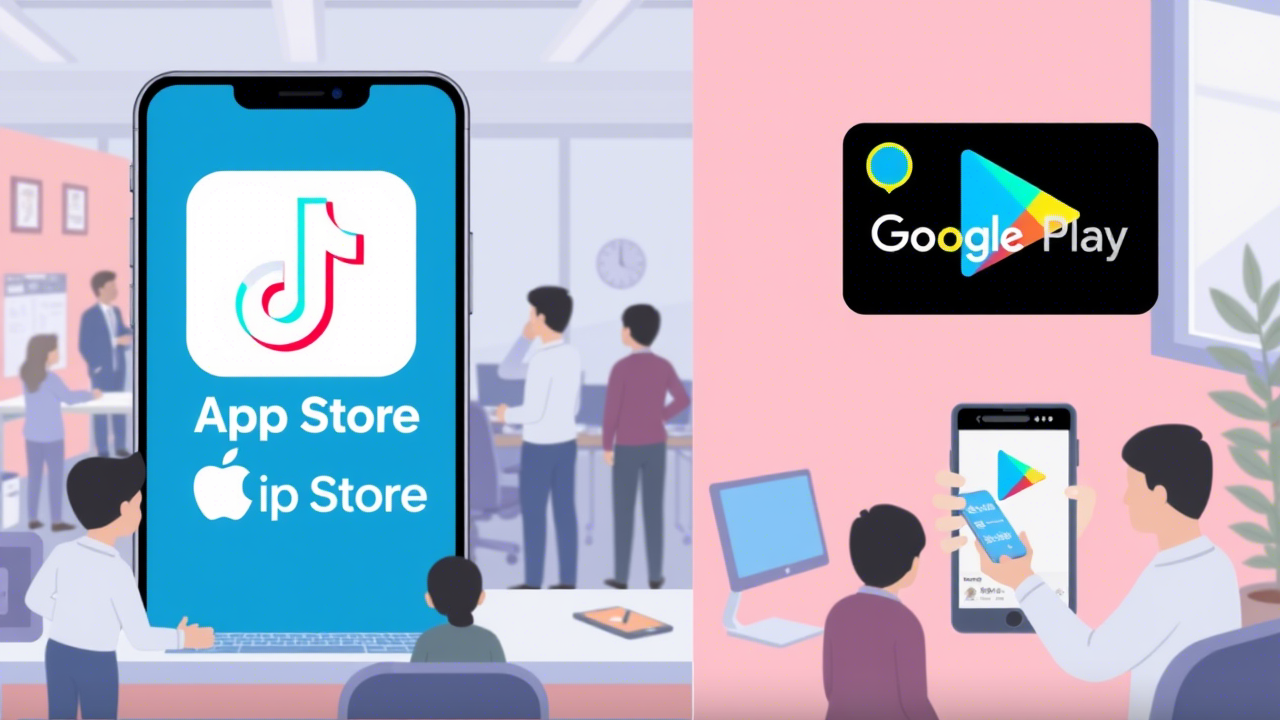In recent years, TikTok has become a cultural juggernaut, reshaping how we consume content and interact online. However, its meteoric rise hasn’t come without challenges—especially when navigating the rules of significant app distributors like Apple and Google. A recent report suggests tensions between TikTok and these tech giants are escalating, raising questions about the future of app store policies, revenue sharing, and digital monopolies.
Let’s break down what’s happening, why it matters, and what it could mean for users, developers, and the broader tech ecosystem.
The Core Issue: App Store Policies Under Scrutiny
At the heart of the debate lies the longstanding issue of app store fees and control over distribution channels. Apple’s App Store and Google Play charge developers a 15-30% commission on in-app purchases, depending on the business size. These fees add up quickly for platforms like TikTok, which generate billions in ad revenue and rely heavily on in-app transactions.
Why TikTok Is Pushing Back
TikTok isn’t alone in challenging these practices; companies like Epic Games (maker of Fortnite) and Spotify have also criticized app store policies as anti-competitive. However, TikTok’s case stands out because of its massive global user base and influence.
According to industry analyst Sarah Lin, “TikTok’s pushback highlights growing frustration among developers who feel gatekeepers are squeezing them. This isn’t just about money—it’s about control over innovation and user experience.”
By resisting these fees, TikTok aims to reduce costs, pass savings onto creators, and potentially create alternative payment systems outside the traditional app store framework.
How Apple and Google Are Responding
Unsurprisingly, both Apple and Google have defended their app store models, arguing that their commissions fund essential services like security checks, updates, and customer support.
Apple’s Stance
Apple has long positioned itself as a champion of privacy and security, emphasizing the rigorous vetting process apps must undergo before appearing in its store. In response to criticism, Tim Cook stated during a recent earnings call, “Our goal is to provide users with a safe, reliable environment where they can download apps with confidence.”
However, critics argue that Apple’s strict policies stifle competition and limit consumer choice. Some lawmakers have even accused the company of monopolistic behavior—a claim under investigation in several countries.
Google’s Approach
Unlike Apple, which tightly controls its hardware-software ecosystem, Google operates in a more open Android environment. Yet, its Play Store remains a critical gateway for many developers. Google recently introduced changes allowing some developers to use third-party billing systems, but these concessions haven’t satisfied everyone.
“Google’s moves are steps in the right direction,” says tech journalist Mark Thompson, “but they’re still far from addressing the root problem: excessive reliance on centralized app stores.”
What This Means for Users
While much of the discussion revolves around corporate battles, everyday users will ultimately feel the impact of these disputes. Here’s how:
Potential Price Increases
If TikTok succeeds in bypassing app store fees, it could lower operational costs and potentially offer better deals to creators and advertisers. Conversely, if Apple and Google retaliate by restricting TikTok’s functionality or removing it altogether, users may lose access to key features—or worse, the app itself.
More Options for Payments
One possible outcome is the rise of alternative payment methods. For example, TikTok might encourage users to subscribe or purchase directly through its website instead of the app. While this could save users money, it might lead to fragmented device experiences.
Broader Implications for Privacy and Security
App stores play a crucial role in ensuring apps meet specific standards for safety and performance. Suppose developers sidestep these platforms; there is a risk of increased exposure to malicious software or poorly optimized apps. Balancing convenience with protection will be key moving forward.
Lessons Learned: The Bigger Picture
This clash between TikTok, Apple, and Google reflects broader trends in the tech industry, including:
Regulatory Pressure
Governments worldwide are scrutinizing big tech’s dominance over digital marketplaces. Legislation like the EU’s Digital Markets Act (DMA) already requires Apple and Google to allow sideloading and third-party app stores—a move aimed at fostering competition.
Shifting Power Dynamics
As companies like TikTok grow stronger, they’re increasingly willing to challenge established norms. This shift could inspire other developers to demand fairer terms, forcing Apple and Google to adapt or risk losing relevance.
Innovation vs. Control
Ultimately, this battle boils down to a fundamental tension: Should tech giants maintain tight control to ensure quality and security, or should they loosen their grip to encourage innovation and affordability? There’s no easy answer, but finding a balance will shape the future of technology.
Final Thoughts: Navigating the New Era of Digital Distribution
The standoff between TikTok, Apple, and Google underscores the complexities of modern app ecosystems. As consumers, we benefit from having access to innovative tools and services—but we also depend on safeguards to protect our data and devices.
For now, all eyes are on how this saga unfolds. Will TikTok succeed in carving a new path, or will Apple and Google double down on their existing models? One thing is clear: The outcome will have ripple effects across industries, from how apps are distributed to how businesses operate in the digital age.
You can visit reputable sources like:
- Download TikTok:
- Apple App Store:
- Google Play Store:
What do you think about the ongoing debate? Do you support stricter regulations for app stores, or do you believe companies like Apple and Google deserve their cut? Share your thoughts in the comments below!







